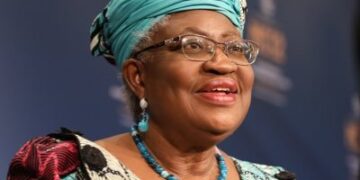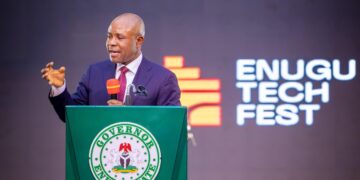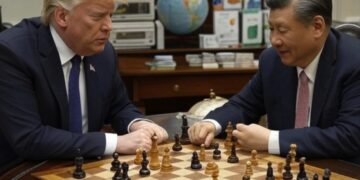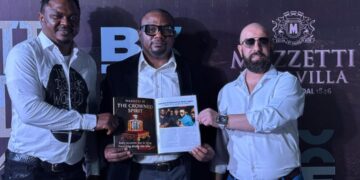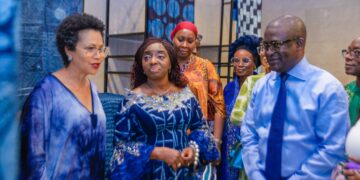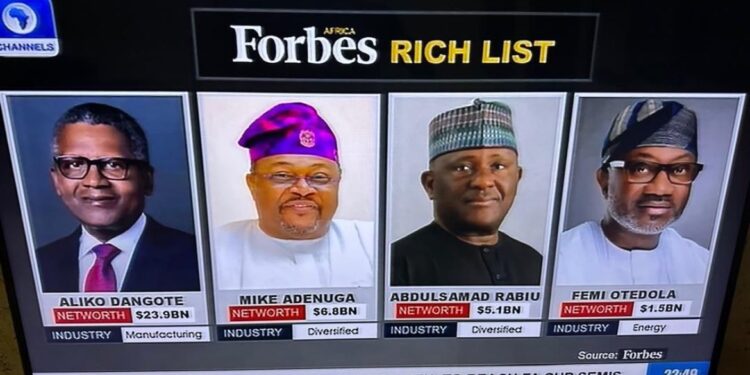A screenshot of Nigeria’s latest “Top 10 Richest” list recently landed in my inbox, accompanied by a question from an Igbo contact: “Why, with all our ambition and drive, is there no Igbo name here?” It’s a query that cuts to the heart of a paradox. The Igbo are celebrated for their entrepreneurial spirit—evident in the bustling markets of Onitsha and the industrial clusters of Nnewi—yet they remain absent from this elite tier. After digging into industry trends, historical records, and economic structures, Stakeholders Magazine uncovered a tale shaped by the nature of Igbo business, political distance, and a war’s enduring legacy.

Trading Breadth, Not Billionaire Depth
The investigation began with the industries where Igbo entrepreneurs thrive: trade, spare parts, electronics, transportation, and hospitality. Walk through Alaba International Market or the Main Market in Onitsha, and the scale of Igbo commerce is undeniable. These sectors pulse with activity, generating wealth that sustains families and communities. Yet, they share a defining trait—they rarely form oligopolies.
In Nigeria, billionaires often emerge from industries like cement, telecommunications, or flour milling, where a handful of players dominate. Central Bank of Nigeria data highlights this: the cement sector, for instance, is controlled by just three major firms, while thousands compete in the spare parts trade. Oligopolistic markets, with their high barriers to entry and limited competition, allow wealth to be concentrated in a few hands—think Aliko Dangote or Mike Adenuga. By contrast, the fragmented nature of Igbo-dominated sectors fosters a broad base of millionaires but caps individual fortunes. The result is a horizontal spread of prosperity rather than the vertical accumulation needed to crack the top 10.
This dynamic isn’t a failure of ambition. It reflects a structural reality: Igbo businesses excel at creating accessible, replicable models that lift entire regions, not just single tycoons. The wealth exists—it’s just distributed differently.
Power Plays and Political Distance
The trail led next to the role of government influence, a linchpin of Nigeria’s billionaire class. In a nation where economic success often hinges on state support—be it through contracts, monopolistic licenses, or tax incentives—proximity to power is a game-changer. The cement industry’s dominance by a single player owes much to exclusive concessions granted decades ago. Telecommunications giants have similarly leveraged spectrum allocations and regulatory advantages.
Historically, the Igbo have been farthest from this center of influence. Since Nigeria’s independence in 1960, the Southeast has rarely held sway over federal power, with political representation peaking briefly under General Aguiyi-Ironsi in 1966. The region’s perceived or real marginalization has limited access to the patronage networks that propel individuals into billion-dollar territory. In Nigeria’s economic framework, reaching that stratosphere without systemic leverage is a near-impossible feat—a barrier the Igbo have faced head-on.
This distance doesn’t diminish their ingenuity. Their ability to build fortunes despite limited government backing underscores a self-reliant streak, honed over decades. But it also explains why their wealth, while substantial, rarely scales to the heights of Nigeria’s richest.
The Biafran Reset: A 50-Year Climb
No analysis of Igbo wealth is complete without confronting the Nigerian Civil War (1967–1970), known as the Biafran War. Historical records paint a stark picture: the conflict razed businesses, homes, and savings across the Igbo heartland. The war’s end brought a second blow—the Nigerian government’s policy of capping all Biafran bank accounts at £20, regardless of prior wealth. This move erased generational fortunes overnight, forcing entrepreneurs to restart from zero.
The numbers tell the story. Every Igbo millionaire in dollars or billionaire in naira today is less than two generations removed from that reset—just 50 years deep. In contrast, families in Nigeria’s North and Southwest, largely spared the war’s devastation, have built on pre- and post-independence advantages, compounding wealth over a century. For the Igbo, the clock didn’t start until 1970, a handicap that still reverberates.
What’s striking, though, is the ground they’ve covered. From Nnewi’s spare parts hub to Nollywood’s global rise, Igbo entrepreneurs have rebuilt thriving ecosystems in half a century. This rapid ascent speaks to resilience, even if it hasn’t yet landed a name on the billionaire list.
Resilience Redefines Wealth
The National Bureau of Statistics offers a lens on this resilience. The Southeast boasts one of Nigeria’s highest rates of small and medium enterprises per capita, many Igbo-led. These businesses—spanning trading posts, manufacturing units, and entertainment ventures—generate millions, not billions, but their collective impact is profound. Nollywood employs thousands; spare parts clusters sustain towns. This distributed wealth may not dazzle rich lists, but it powers local economies in ways concentrated fortunes rarely do.
This raises a question for stakeholders: Should wealth be judged solely by individual rankings? The Igbo model prioritizes community upliftment over singular dominance, fostering a robust middle class in a nation grappling with inequality. It’s a different metric of success—one that challenges the billionaire benchmark.
The Future: A Billionaire on the Horizon?
Could an Igbo name break into the top 10? Emerging sectors like tech, renewable energy, and global trade offer hope. Unlike traditional oligopolies, these fields reward innovation over systemic gatekeepers—a terrain where Igbo ingenuity could shine. The success of Igbo co-founded startups like Paystack hints at this potential. Political evolution, too, might bring the Southeast closer to power, unlocking the leverage needed to scale existing fortunes.
For now, the Igbo enigma persists. Their absence from Nigeria’s richest list isn’t a lack of drive but a confluence of history, structure, and choice. They’ve turned adversity into a sprawling network of prosperity, not a single crown. As Stakeholders Magazine found, their story reframes wealth—not as a solo summit, but as a shared climb. My Igbo contact nodded at that. “We’re not missing,” he said. “We’re just building our way.”
Credits: @Row_Haastrup, Eizu @Hexavial







